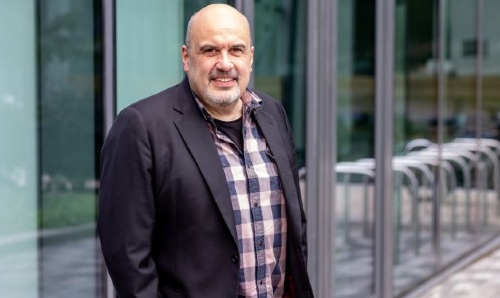Miguel Martinez Lucio
Professor in International HRM and Comparative IR

A common thread throughout all Miguel's work is worker voice and, more specifically, what happens to that voice as the economic, social and political climate evolves.
As he says: "I have always been fascinated by issues around democracy, democratisation and participation at work. Around the importance of worker voice, and how that voice and democracy at work is challenged."
His interest was first sparked after he completed his masters and decided he wanted to do more research on political transitions and their impact on work and trade unions.
"At the time in the 1970s we were seeing the emergence of democratic systems across some parts of southern Europe, and this was obviously having a great impact on worker rights and democracy in the workplace too. It was a very exciting time to be studying these issues in more depth."
Union power
However, as Miguel adds, over the next decade the position of trade unions in both the UK and the US was then challenged.
"As the power of unions was significantly cut, we then saw the emergence of new types of management techniques and an attempted reshaping of worker representation more aligned to managerial interests."
"In a sense management were filling the gaps left by unions, though sometimes those gaps weren't filled at all. These trends drove me to start looking at tensions around voice in the workplace, the tensions between new management techniques and union strategies, and at the politicisation of work – especially in areas such as promotion, pay, equality, and health and safety."
"The common thread was ‘voice' and what happens to voice amidst this displacement of the unions and the rethinking of interests in the workplace. How can we understand better these political tensions?"
Role of state
Against this backdrop there has been much research on the role of the state and how it has been reshaped. Aligned to changes in union power there is a widely held belief that the role of the state has diminished, especially here in the UK. But Miguel says this is only partly true.
"As my own research has shown, some areas such as labour inspection and regulation are less resourced and weaker, and we have seen the partial withdrawal of the state. But in other senses the state has actually become more involved. For instance, our courts have actually become busier than ever in terms of making important rulings."
"It is therefore too simplistic just to say there has been a transition whereby the power of the state has been reduced. Instead, it has been pulled and stretched. No state can govern in isolation, and it always requires other actors to be involved. The problems emerge though if those other actors are weak, whether that be unions or line managers."
Comparative work
Over the last 20 years or so the UK model of increased privatisation, deregulation and public sector reform has been widely embraced by other European countries, and this is one of the key reasons why much of Miguel's work has focused on the comparative dimension leading to a range of challenges and social tensions. Indeed, it is one of the precise reasons why he joined Alliance Manchester Business School back in 2007.
"At the time the School was already developing an excellent reputation in the fields of fairness of work and comparative analysis and this had great appeal to me personally."
"What is fascinating is that this wider transition to a more management-led collective approach to voice has been contested and is not straightforward. In fact, in some countries it has been strongly contested and collective bargaining has not collapsed as it has done in other countries. And following the financial crisis of 2008 we have also seen a trend towards ‘re-regulation' accelerate after a period of decline in bargaining in some aspects and contexts."
Research projects
A major current research project that Miguel is leading, and which involves various colleagues, is an ESRC-funded project looking at how equality policies and regulation at work have developed across four different European countries.
The three-year £566,000 project, entitled ‘The Politics of Equality: The Evolving Nature of Equality Agendas at Work in the UK and Europe in a Context of Political Uncertainty' also involves partners at the Grenoble Ecole de Management.
In particular the project is looking at the UK in comparison with France, the Netherlands and Spain, countries that are seen as having engaged - albeit in different ways - with expanding equality at work for a diverse range of workers across different dimensions.
Gig economy
Looking ahead, he says the continued growth of the gig economy is another major area of research.
"Worker voice never stands still, as exemplified by the emergence of the gig economy. And new forms of collective worker voice, facilitiated by social media, are continuing to emerge. But these great changes remain complex and uneven."
Ultimately work and employment issues have become more – not less – political and it is important, says Miguel, to be sensitive to these issues and questions of justice and fairness which are becoming even more central, albeit in different ways.
